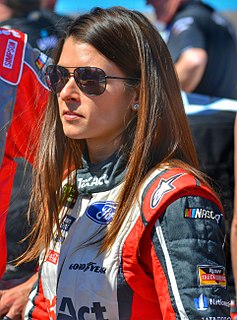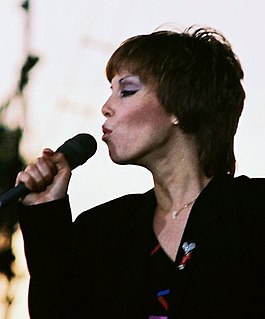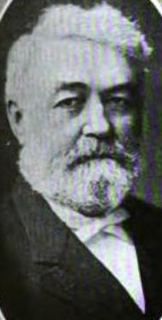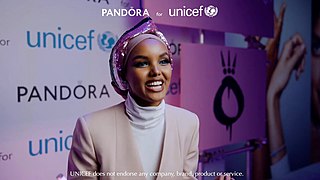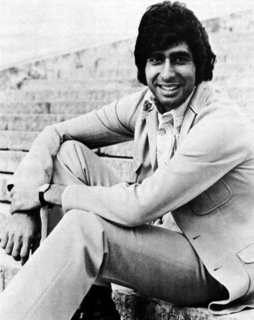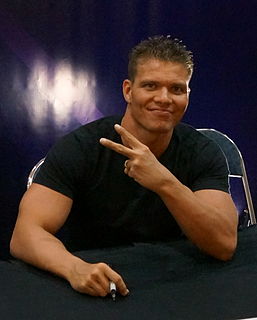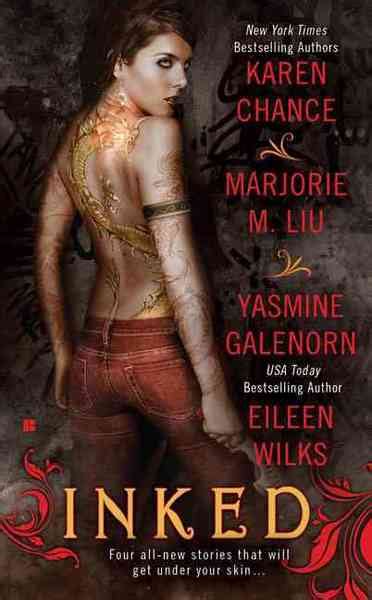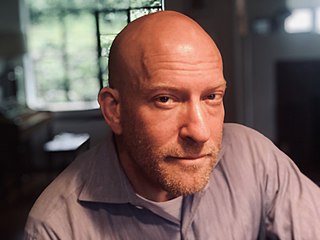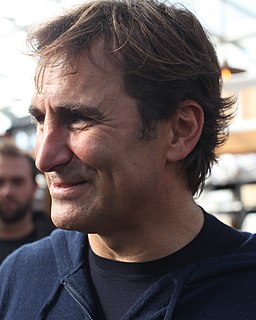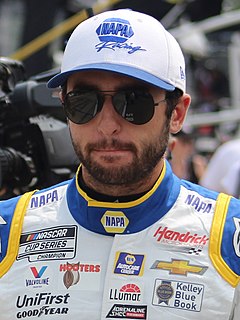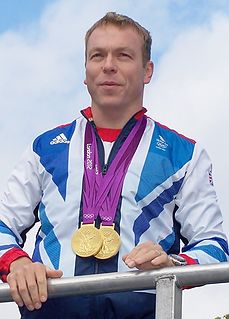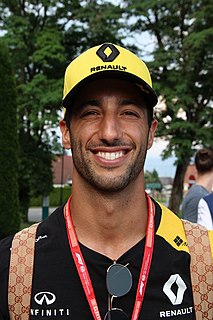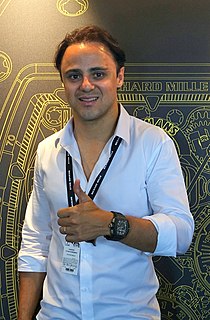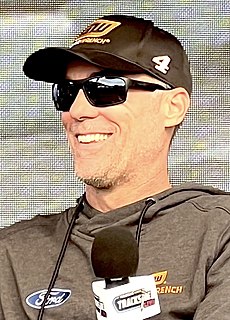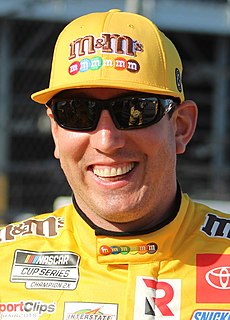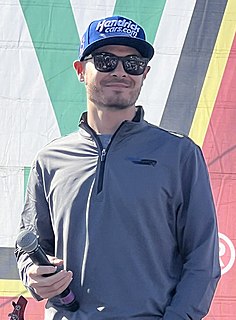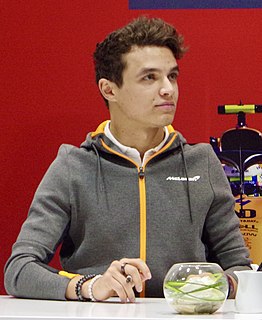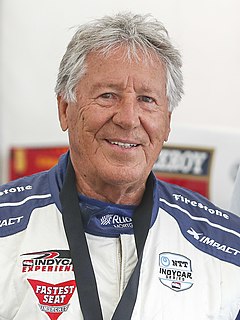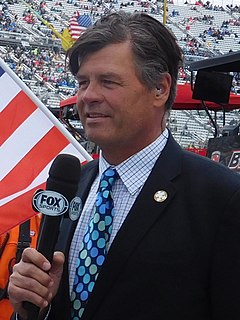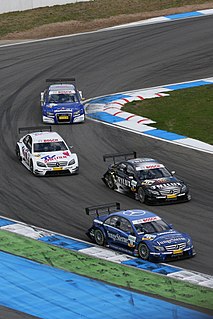A Quote by Danica Patrick
On Memorial Day, I was out floating on Lake Norman and came across Denny Hamlin. We struck up a conversation, and one of the first things we were talking about was how much it helped him when he started racing the Cup car and how much it helped his Nationwide program.
Related Quotes
There's a story about when President Lyndon Johnson visited NASA and as he was walking the halls he came across a janitor who was cleaning up a storm, like the Energizer bunny with a mop in his hand. The president walked over to the janitor and told him he was the best janitor he has ever seen and the janitor replied, "Sir, I'm not just a janitor, I helped put a man on the moon." See, even though he was cleaning floors he had a bigger purpose and vision for his life. This is what kept him going and helped him excel in his job.
I am always struck by how difficult it is for people to see how much cruelty they are bringing not only upon animals but upon themselves and their loved ones and other people, how much we are screwing up the planet, how much we are hurting our own health, how hard it is to change all that, how eager people are to make a buck at everybody else's expense - all those things are discouraging.
I was in a conversation and someone said: "You know, we were talking about the whole issue of transgender and how it has become so accepted now, and somebody said, 'You know the Oprah show, I think has had a big impact.'" I said, I don't think so. We did several transgender [shows], but we didn't do as much for transgender as I did for, say, abused kids or battered women. And they said, "But no, you started the conversation. You started the conversation and the conversation has led us to here."
I remember the day before my dad died, I was in a hospital room with him, and he had lived a long life. He was 94, and I helped him get up, and there were two windows separated by the partition. I took him to the first window, and he kind of found his way to the second window, and on the way there was a mirror, and he looked into it, and I saw through the corner of my eye, I remember the look on his face. What came over his face was "So I'm here. I've crossed that bridge."
Housing in New York seemed to fit Norman Lear. In addition, his shows confronted all kinds of social issues - racial separation and prejudice being foremost among them. The Evans of Good Times were the first black family to be the focus of a primetime American TV show. A lot of the people we came across in filming were familiar with the role Norman played in catalyzing important national conversations about race. They seemed grateful to him for trying to move the needle.
Memorial Day, the reason for it, fewer and fewer people know. It's just the first real weekend of summer, three-day weekend and so forth, barbecues, what have you. That's why I think education is important. I'm really glad my dad drilled into me these things that he had lived through and it helped me relate to him better and understand the things he thought were important and why he was raising me the way he was.
